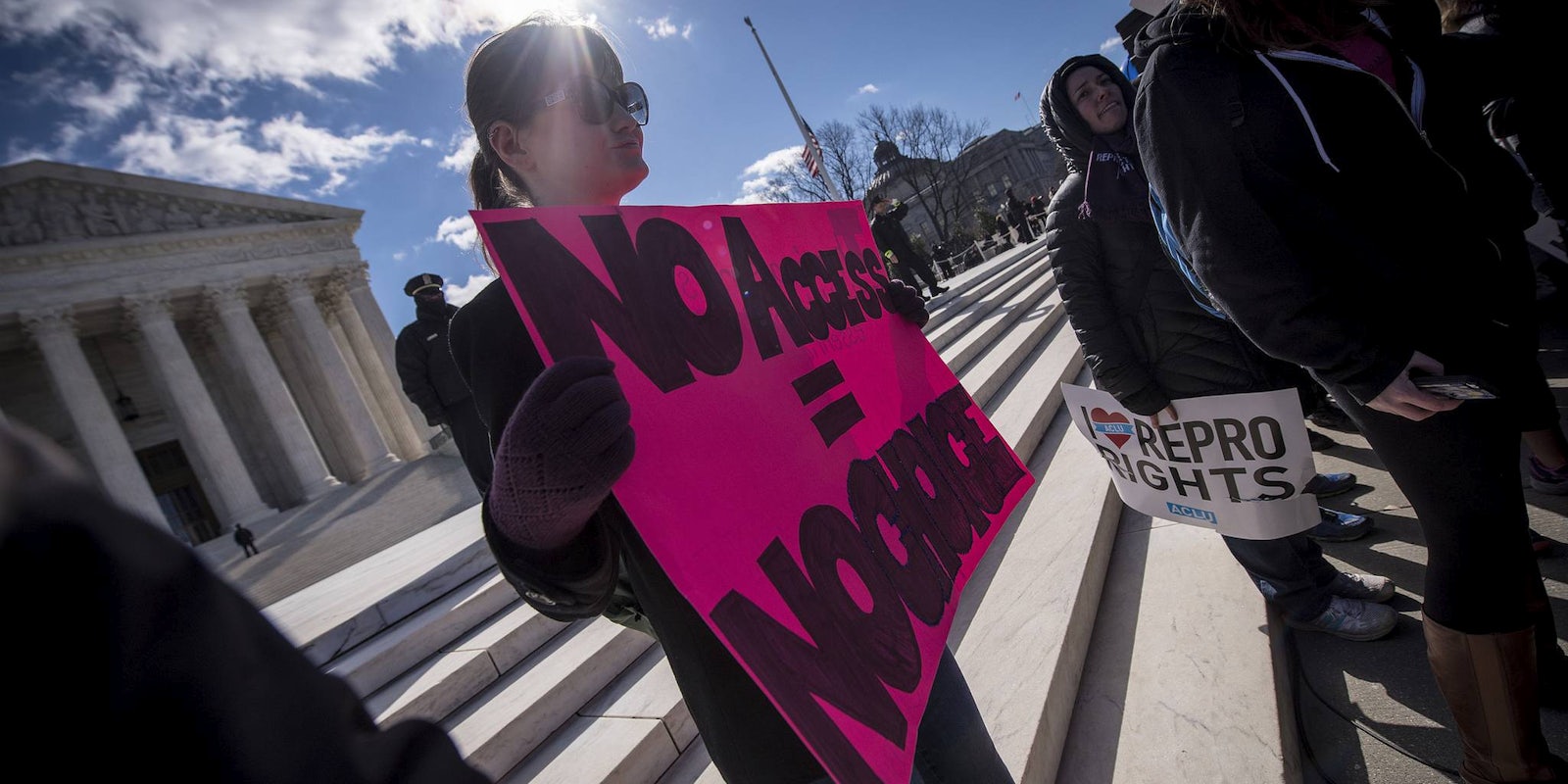In 1976, Congress passed the Hyde Amendment—and it’s been a thorn in women’s rights activists’ side ever since. The bill rider prevents federal funds from being used to pay for abortion, except to save the life of the mother. Each year the bill is tacked on to other legislation and passed. This year, though, for the first time in 40, its repeal has become part of the Democratic platform.
“Any right that requires you to take extraordinary measures to access [abortion] is no right at all,” Clinton said of the provision to end Hyde.
Many see this turn of events as a great stride toward giving women— especially poor and minority women—equal access to abortion.
“The Hyde Amendment made the right to abortion an illusion, particularly to low-income women and women of color,” said Congresswoman Jan Schakowsky of Illinois, a member of the Select Committee to Attack Women’s Health, in a press call. “It doesn’t just impact women on Medicaid—it impacts, Native American women, women in federal prisons, women in the military, and women in the Peace Corps.” It also disproportionately affects transgender people, who are more likely to be uninsured than straight or LGBT people.
Schakowsky said for a long time, Hyde was seen as untouchable. But now, data shows public opinion about economic access to abortion has changed. According to Hart Research and Associates, voters in 11 “battleground” states disagree with the idea that a woman’s wealth should determine her access to healthcare and abortion. A June 2015 poll showed 56 percent of voters would support a bill that required Medicaid to cover abortion.
Schakowsky, along with Congresswoman Barbara Lee of California, is also one of the authors of the Equal Access to Abortion Coverage in Health Insurance Act, also known as the EACH Woman Act. The act would require the government to provide abortion coverage through Medicare, Medicaid, and other programs, and that “state and local governments may not prohibit, restrict, or otherwise inhibit insurance coverage of abortion care by private health plans.”
The push to end the Hyde Amendment and to pass the EACH Woman Act comes at a time when TRAP laws and other provisions have been slowly chipping away at abortion access, making it legal in only the most nominal sense for many. And at a recent Judiciary Committee Hearing, Republicans praised its effectiveness in keeping people from getting abortions. “One in nine people born under Medicaid in a state that has no Medicaid-funded abortion program was saved, thanks to the Hyde Amendment,” said the GOP’s witness, Genevieve Plaster.
Activists are also up against a recent report from News Busters, which said major TV networks have not once reported on the amendment’s anniversary—nor have they reported on the support its repeal has gotten from Clinton.
Donald Trump, for his part, recently announced that he supports making the Hyde Amendment permanent. In a letter to supporters, his campaign writes about his Pro-Life Coalition, and that by making Hyde law it would “protect taxpayers from having to pay for abortions.”
But with Clinton’s vocal support and online movements like #BeBoldEndHyde, advocates are hoping to draw more attention to ending Hyde.
For 40 years, the #HydeAmendment has denied poor women the right to reproductive freedom—it’s time to end the discrimination: #BeBoldEndHyde
— Nancy Pelosi (@SpeakerPelosi) September 23, 2016
We find it repugnant that the Hyde Amendment reserves a constitutionally protected right only for those who can afford it. #BeBoldEndHyde https://t.co/jh55u6SRSl
— ACLU (@ACLU) September 23, 2016
Rich white men shouldn’t make family planning decisions for poor WOC. That’s an abuse of power & a violation of #reprofreedom #BeBoldEndHyde
— Rep. Barbara Lee (@RepBarbaraLee) September 23, 2016
https://twitter.com/ReproRights/status/779331630737612801
“I was a staffer in the House of Representatives when this shameful and discriminatory policy was first passed,” Lee said in a press release about Hyde. “This is why I introduced the EACH Woman Act to finally make Hyde history… However we feel about abortion, none of us, especially elected officials, should be interfering with a woman’s healthcare decision just because she is poor.”


